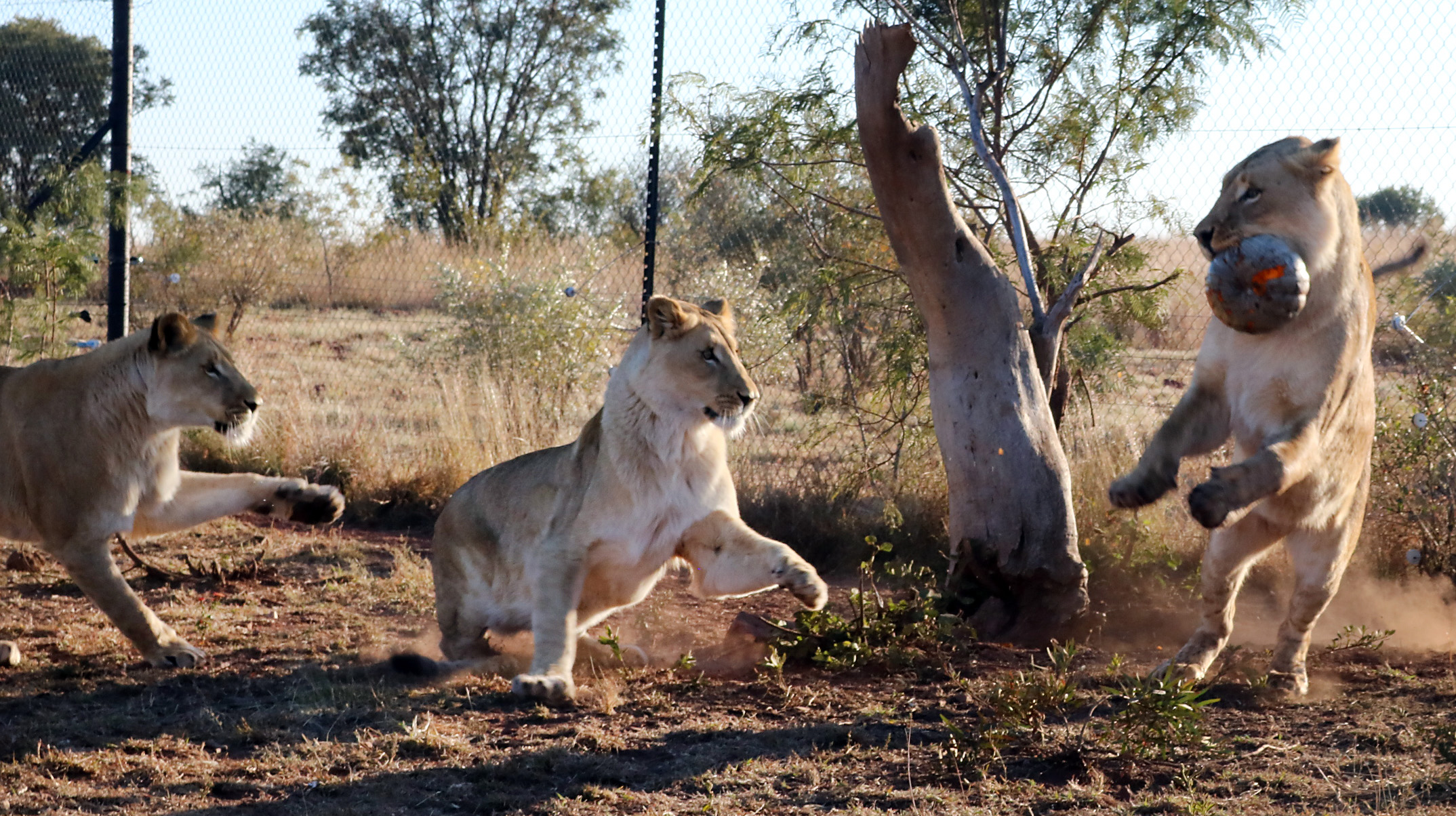Lion’s Rock Big Cat Sanctuary, near Bethlehem in the Free State, is where broken misfits are brought to heal. They arrive from bombed-out circuses, petting zoos and canned-lion safaris – carrying the trauma of their past lives.
Getting them to lead the lives of normal lions after years of abuse is often difficult. But now a drug being used at Lion’s Rock is showing results.
It is jokingly referred to as the “love drug” and its ability to take the edge off aggressive cats and chill them out is offering a lot of promise in the feline rescue world.
The drug is oxytocin, the hormone that acts as a neurotransmitter and is responsible for feelings of love and social bonding.
Neurologist Dr Jessica Burkhart has, for the past couple of years, been part of a group of academics from the Lion Research Center at the University of Minnesota who have been studying the effect of oxytocin on lions in Dinokeng, just north of Pretoria.
Their findings, which have proved that oxytocin does make lions more friendly, were published in the latest edition of the journal iScience.
Now Burkhart is using oxytocin on the big cats of Lion’s Rock.
“I am primarily doing introductions between unfamiliar individuals. They are just unhappy, living solitary lives. It is actually very bad for their mental and physical health,” she explains. “So it is better to put them together because they are social animals. But it is not easy to stick them together because they fight over territory – and this is where oxytocin helps a lot.”
Oxytocin recently helped with the socialisation of two lions at the sanctuary.
“I just put a pair together that had been taken away from their mothers at birth and had [each] never been with another animal. They had no idea how to behave and we were having trouble getting them to show interest in each other at the fence.
/file/dailymaverick/wp-content/uploads/2022/04/Lions2.jpg)
“With the oxytocin, we were able to get them together. And now they’re so happy together,” says Burkhart.
The academics conducted their experiments in 2018 and 2019 using a number of lions at the Kevin Richardson Wildlife Sanctuary in Dinokeng.
Lions were chosen for the experiment because of their sociability. It still proved tricky at times as the hormone had to be administered as a nasal spray, which meant getting up close. Burkhart eventually got a system going that required some deft moves – as well as a little deception.
“We tried all types of things – plastic tongs, metal tongs, whatever – but my sure method is to take a long stick and put a chunk of meat on the end of it. I then stick it against the fence, using my foot to hold it.
“The lion will come and pull on the meat and, while they are doing that, I quickly squirt the oxytocin up their nose.”
After the treatments, they found that 23 of the lions who had been given oxytocin became more tolerant of other animals in their space. They also roared less, a further indication they had mellowed out.
Even their facial expressions are said to soften under the influence of the love drug.
Oxytocin has been found to make other big cats groovy too: “I’ve worked on some cheetah relocations. It’s really awesome when you see that the cheetahs are so chilled in the crates, which is really nice because cheetahs can die from stress and anxiety,” says Burkhart.
'No miracle drug'
The learnings from those experiments could benefit humans one day too. Oxytocin therapy could help people with neuropsychiatric disorders such as autism, post-traumatic stress and depression.
But, for the moment, the hormone is helping lions at a time when the apex predator faces an uncertain future.
“Oxytocin can be used when making up groups of lions to potentially repopulate areas,” says Kevin Richardson, a wildlife conservationist and YouTube personality who is known as the “Lion Whisperer”. Lions at his sanctuary were used for the study.
Another application of oxytocin, Richardson suggests, is to use it to help lions with anxiety disorders. But, he warns, it is not an end-all miracle drug.
“It is not a silver bullet. You still have to implement other practices of good husbandry, understanding behaviour and then also understanding that some animals just aren’t compatible.” DM168
This story first appeared in our weekly Daily Maverick 168 newspaper which is available for R25 at Pick n Pay, Exclusive Books and airport bookstores. For your nearest stockist, please click here.





 Lionesses play with a toy pumpkin after their oxytocin treatment. (Photo: Jessica Burkhart)
Lionesses play with a toy pumpkin after their oxytocin treatment. (Photo: Jessica Burkhart)